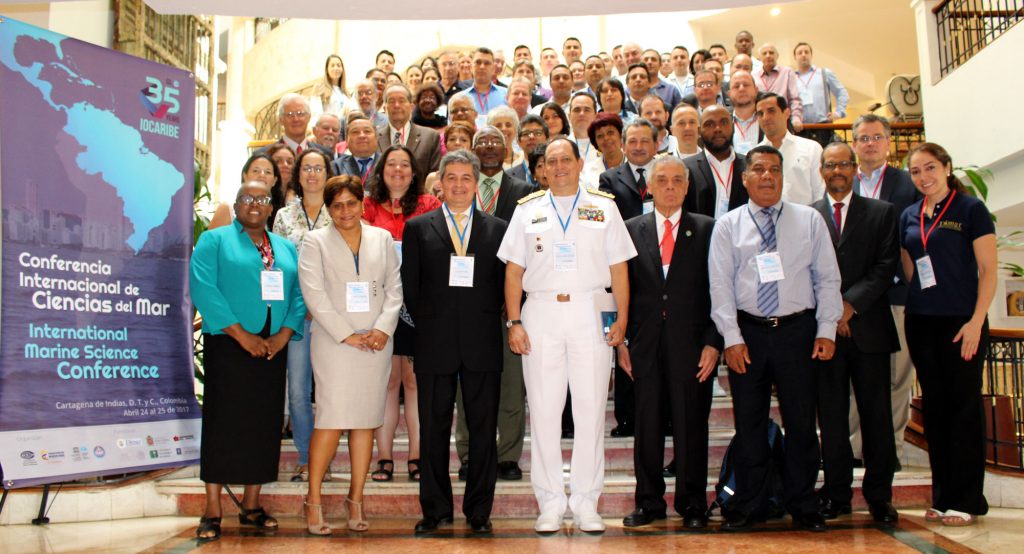May 5, 2017 – The International Marine Science Conference, organized by the Intergovernmental Oceanographic Commission of UNESCO and hosted by the Colombian Ocean Commission, took place in Cartagena de Indias, Colombia on April 24th and 25th, 2017. This event was organized to celebrate the 35th anniversary of IOCaribe, the regional Sub-Commission of IOC-UNESCO covering the Caribbean and Adjacent Regions.
Around 100 professionals and graduate students from the CLME+ region participated in the Conference, including senior experts that presented on seven different topics: climate change, oceanographic data, early warning systems, capacity development, marine biodiversity, assessment and information policy. The event featured also a poster exhibition.

The objective of the Conference was to present the latest developments on oceanographic science in the Caribbean and adjacent regions, as well as to collect inputs to guide the Scientific Plan of IOCaribe, to be discussed at the 14th Session of IOCaribe Member States. In this way, the Conference also contributes to CLME+ Strategic Action Programme (CLME+ SAP), mainstreaming findings from monitoring, science and research in regional, sub-regional and national decision-making. It was also a venue to establish coordination and cooperation among different initiatives related to the marine environment and its living resources in the CLME+ region. The discussions at the Conference are highly relevant for the activities of SAP monitoring and evaluation, especially for the development of the “State of the Marine Ecosystems and associated Economies” (SOMEE) report.
IOCaribe is a member of the Interim Coordination Mechanism for the sustainable management, use and protection of shared living resources in the Caribbean and North Brazil Shelf Large Marine Ecosystems, and as such plays an important role in the CLME+ Project.
More: CLME+ Poster


